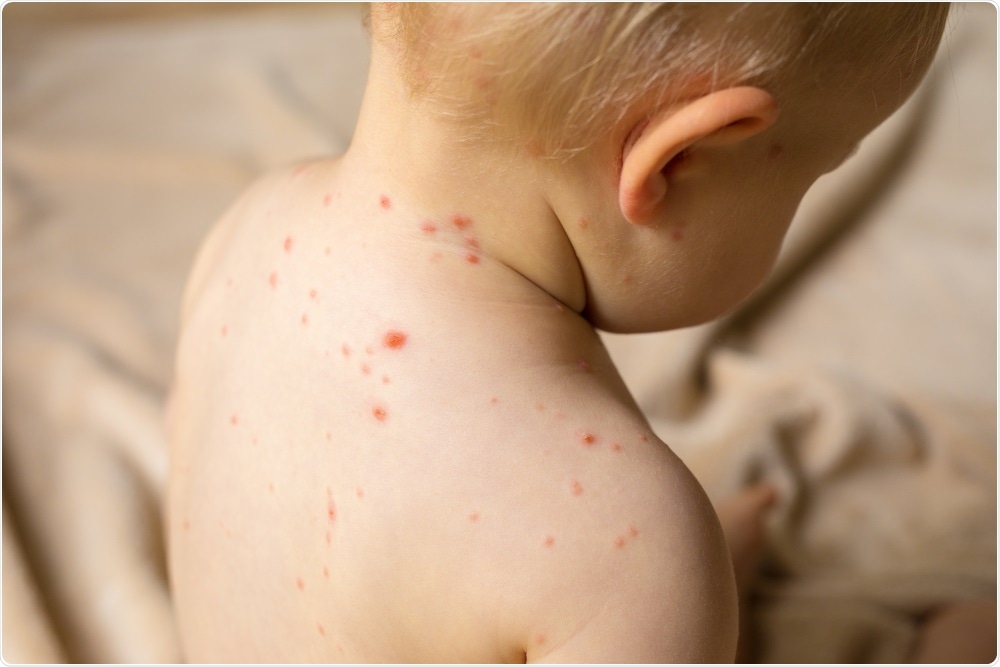In 2000, the USA achieved a milestone public health victory by eliminating measles, a disease characterized by fever, coryza (catarrh), conjunctivitis, coughing, and a rash. However, the CDC recorded 555 reported measles cases between January and April 2019 across 20 states in the USA. Several other countries have also reported a resurgence in the disease, some have even banned unvaccinated children from schools. Thus, the question must be asked, are we going backward?
 Kaspars Grinvalds | Shutterstock
Kaspars Grinvalds | Shutterstock
Measles is transmitted by respiratory droplets that can be viable in the air for 2 hours. It is a highly contagious disease that typically spreads from one person to 9-18 other people. The risk of contracting the disease if you are unvaccinated is 90%. Whilst most patients recover from the disease after a few weeks, around 1 in 1000 patients experience serious and fatal complications that affect the CNS.
Devastatingly, around 70,000 people still die from measles every year, despite the widespread availability of highly effective vaccines that can provide up to 97% protection with two doses.
Vaccination rates plummeted after a paper described a link between the vaccine and autism, and numbers have been slow to recover, despite several large cohort studies proving that there is no link between the diseases. Minor side effects include a sore arm and fever, and in rare cases (5%), a reduction in platelet count.
Although the measles vaccine has prevented 21 million deaths over the world since 2000, there has been a resurgence in cases, with a 31% increase between 2016 and 2017. In several European countries, the virus has re-established itself where previously its transmission was stopped.
Herd immunity: Protection in numbers
Herd immunity refers to a population wherein a sufficient number of persons have been vaccinated, providing protection for unvaccinated individuals. In the case of measles, 95% of the population is required to be effectively protected for preventing the resurgence of measles. The UK is close to this number, with 91.2% children receiving the MMR (measles, mumps, and rubella) vaccine between 2017-2018, but the threshold is clear, at 95%.
The absence of herd immunity can put an entire community at risk. For example, a single child in Shanghai in 2015 led to the infection of 23 other children. Fifty percent of those infected children ended up with severe complications and it was fatal in 21% of children.
The risk of complication is highest in people whose immunity has been compromised. In such cases, measles may cause more severe complications that have not yet been documented, including giant-cell pneumonia and measles inclusion body encephalitis.
Patients most at risk of such extreme responses are those with HIV, cancer, organ transplants, and patients receiving high-dose glucocorticoids and immunomodulators. These people cannot be protected safely using live-attenuated vaccines and have to depend on herd immunity to protect themselves against the measles infection.
Are we going backward?
Despite the availability of an effective vaccine, measles is fast emerging as a large public health issue. The growing anti-vaccine movement threatens to derail the progress made to eradicate measles and puts the world behind by a decade in its efforts to combat this disease.
Source:
Measles in 2019 — Going Backward. 2019. NJEM. DOI: 10.1056/NEJMp1905099.